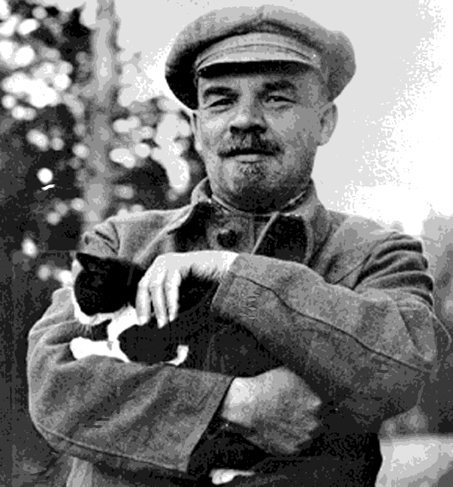- 03 Dec 2013 01:59
#14336696
I wasn't saying that Maoism and Marxist-Leninism are the same thing, or that the USSR and China were, the were only even allies for a short time. And Stalinism being better exported may have more to do with the fact that it had been established longer before its destruction. Maoism only existed for about twenty years (in power), Stalinism for about 70. And yes, Marxist-Leninism is more or less a way of saying Stalinism. But I am not advocating Marxist-Leninism, as I do not agree with Stalinist thought, but rather Leninism, because I feel it contributes much in the way of organizing a revolution and socialist leadership. You may say Lenin influenced Stalinist thought, but Leninism and Stalinism are not the same thing.
Rei Murasame wrote:No. I have to get in with this before it goes off course. The USSR disagreed in thought and action with the things that went on with China. The revolution in the USSR actually did rely on the proletariat to take it forward. They did not present a narrative of having to bring peasants in to 'take the towns'. It simply did not go that that way. Instead, the USSR manifested in the towns and went to 'take the countryside'. Its a very big difference.
Furthermore, Marxism-Leninism - as far as I'm aware - only became a codified ideology under the rule of Joseph Stalin. So for all intents and purposes, Marxism-Leninism is not orthogonal to the moniker 'Stalinism', it's actually synonymous with 'Stalinism'.
Naturally, in any case, if you have to choose one, Stalinism seemed to export much better results to the third world than Maoism did.
I wasn't saying that Maoism and Marxist-Leninism are the same thing, or that the USSR and China were, the were only even allies for a short time. And Stalinism being better exported may have more to do with the fact that it had been established longer before its destruction. Maoism only existed for about twenty years (in power), Stalinism for about 70. And yes, Marxist-Leninism is more or less a way of saying Stalinism. But I am not advocating Marxist-Leninism, as I do not agree with Stalinist thought, but rather Leninism, because I feel it contributes much in the way of organizing a revolution and socialist leadership. You may say Lenin influenced Stalinist thought, but Leninism and Stalinism are not the same thing.











 Pugachev was a famous leader of peasant's uprising in Russia. Stalin for a long time did not think Mao was a true communist. Nor did he think the CCP was really a communist party. Stalin once was not even confident about the CCP coming to power at all. Some researchers say that is one reason Mao went into the Korean War eager to show he was ,contrary to Stalin's bias , a true revolutionary. And by some accounts, Stalin was moved and radically changed his view about Mao after learning Mao would enter the war anyway. But in my opinion Stalin was at least right in making the judgement that Mao was not a true communist. He got a smattering knowledge of Leninism and esp. Stalinism and perhaps read some rudimentary works on Marxism. But as I have said, Mao actually just scratched the surface of Marxism at best. He was more like a Chinese feudal emperor ,always dreaming a utopian dream.
Pugachev was a famous leader of peasant's uprising in Russia. Stalin for a long time did not think Mao was a true communist. Nor did he think the CCP was really a communist party. Stalin once was not even confident about the CCP coming to power at all. Some researchers say that is one reason Mao went into the Korean War eager to show he was ,contrary to Stalin's bias , a true revolutionary. And by some accounts, Stalin was moved and radically changed his view about Mao after learning Mao would enter the war anyway. But in my opinion Stalin was at least right in making the judgement that Mao was not a true communist. He got a smattering knowledge of Leninism and esp. Stalinism and perhaps read some rudimentary works on Marxism. But as I have said, Mao actually just scratched the surface of Marxism at best. He was more like a Chinese feudal emperor ,always dreaming a utopian dream.

 - By Istanbuller
- By Istanbuller